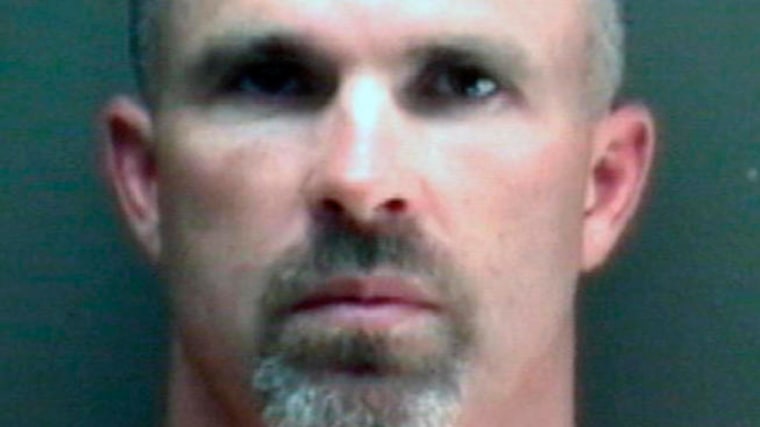Teenagers molested by former New York Yankee Chad Curtis have filed a complaint with the U.S. Department of Education alleging that school board members had a "blind devotion" to the athlete-turned-teacher even after he was convicted.
Curtis, famed for hitting a walk-off home run during Game 3 of the 1999 World Series, is serving 7 to 15 years in prison after a Michigan jury convicted him of criminal sexual misconduct in 2013 while he was a coach at Lakewood High School.
The ex-outfielder, who played for a half-dozen teams in his decade-long career, has always maintained he is innocent and that the girls lied about being groped and violated during secret sports massage sessions.
Four students have filed a federal lawsuit against Curtis and the school district. Evidence uncovered during that process included text messages and emails that are part of the complaint filed this week with the Education Department's Office of Civil Rights.
"Some words of encouragement that have been running through my mind. You have lived and continue to live a righteousness life that no on[e], or no word scan take away. Nothing can separate you from our father. Praise God," board member Brian Potter wrote to Curtis after the first molestation charge was made in 2012.
Potter and fellow board member Gary Foltz wrote post-conviction character references for Curtis, 46, and they are members of his "prayer team," the complaint charges.

The victims' lawyer, Douglas Fierberg, said that while the school board members were shoring up Curtis, his clients — two of whom still attend Lakewood — were being harassed for coming forward about the abuse.
Curtis, he said in the complaint, "was revered at Lakewood both for his celebrity, and for the persona as a 'man of faith' he perpetuated at the school, and at a nearby church where he and at least one board member were congregants."
"This blind devotion to Curtis is evident throughout Curtis's tenure at Lakewood, and in all of Lakewood's dealings with Curtis and Curtis's victims," Fierberg added.
"This blind devotion to Curtis is evident throughout Curtis's tenure at Lakewood."
"While the criminal investigation against Curtis was ongoing, Lakewood refused to take any action to protect Complainants, to remedy the hostile environment Curtis’s abuse had created or the additional hostility caused by retaliatory harassment."
Lakewood Superintendent Mike O'Mara said he could not comment because of pending litigation.
But in their response to the federal suit, the school's lawyers said officials had no idea Curtis was molesting the students before they came forward and that they cooperated with the police probe and barred him from the campus afterward.
"The Lakewood Defendants deny that any senior Lakewood official has, in his or her official capacity, demonstrated any 'allegiance' to Curtis at any time since the allegations arose," the court papers said.
The new complaint, however, references a note that Potter wrote to Curtis' wife clarifying where he sat during his sentencing hearing.
"Chad informed me that you had thought you saw me sitting with the accusers during the sentencing. I want you to know that I was indeed sitting with Pastor Dan Curry on ‘your side’ of the court room," it said.
Potter and Foltz did not return calls for comment.
An Education Department spokesman said that if an investigation determines there is evidence of the Title IX civil rights violation, the agency will attempt to negotiate a resolution. If that fails, the agency can push for an administrative hearing or refer the case to the Justice Department.
